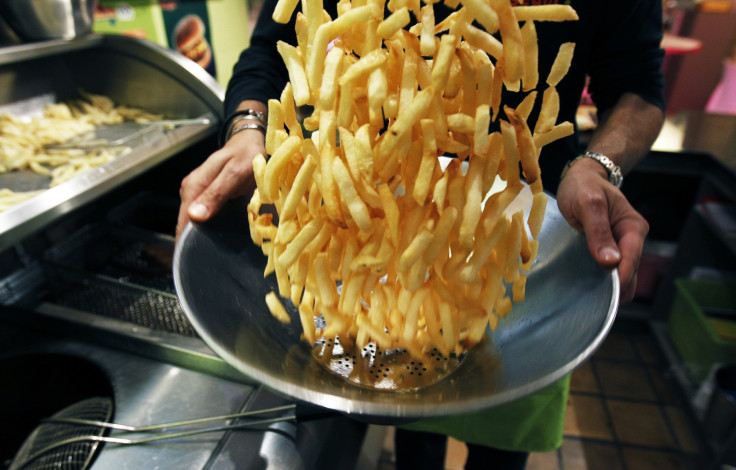Junk food damages red blood cells, say scientists
Significant variations in red blood cells occur between healthy and unhealthy people.
Junk food lovers who favour burgers to fresh fruit may find their lifestyle is causing damage to their red blood cells, according to scientists.
People who consume a large amount of processed foods have an increased number of blood cells with cancer-linked mutations.
The findings show that people whose diets favoured low levels of the antioxidants associated with fresh food were more likely to produce damaged red blood cells.
These cells are vital to human functioning, carrying oxygen from the lungs to the rest of the body and removing waste carbon dioxide.
The finding lends weight to the potential of testing for a person's diet – something which has until now relied on a patient's honesty.
Dr Hasan Haboubi, a gastroenterologist and cancer researcher at Swansea University, said: "We have found that lifestyle, and especially diet, is intimately linked to the health of our tiniest cells.
"If we have a bad diet it is rapidly reflected in the state of those cells."
Haboubi studied red blood cells that are produced by stem cells in the bone marrow.
Stem cells are found all over the body and so can have the potential to be affected by many different lifestyle factors including exercise, diet, exposure to radiation and consumption of certain medicines.
They are therefore the perfect marker to measure overall health and if they are mutated, they produce faulty red blood cells. In healthy people who eat well, there should be no more than three to five mutated cells in every million.
Haboubi was trying to develop a blood test for cancer when he came across the findings.
He realised there were significant variations between healthy volunteers and that this seemed to correlate with their diet.

Speaking to the Times from the British Science Festival in Swansea last week, Haboubi said: "People who consumed low levels of fruit and vegetables and, to a lesser extent, fish had more than double the mutation rate.
"There was a very statistically significant relationship between diet and mutation rate. Purely by chance we may have found a biomarker for the quality of people's diet."
Gareth Jenkins, professor of medicine at Swansea, who worked with Haboubi, said: "The association with diet is really interesting. When you look at people who are apparently healthy but who have a poor diet, you find a high level of mutation in the red blood cells.
"When you look at people in the [dietary] middle ground, you find the mutation rate goes down.
"And when you look at those with the best scores for dietary quality the mutation rates are vanishingly low. So the link between our diet and mutations in our cells is clearly shown."
© Copyright IBTimes 2025. All rights reserved.






















